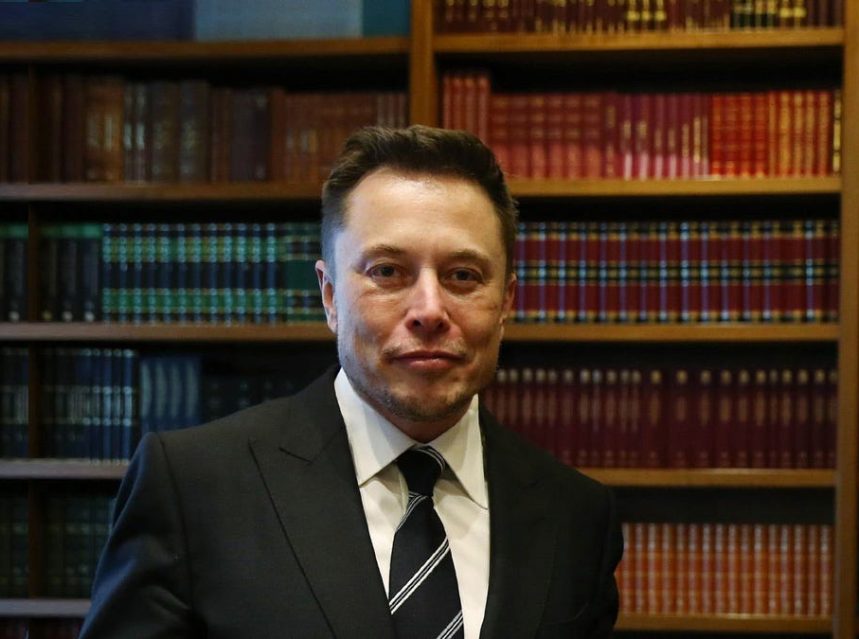9 Books Elon Musk Recommends That Changed His Life

Elon Musk is one of the most amazing people in our generation. The genius behind Tesla and SpaceX, whose brain is always working makes him Musk. Whenever individuals ask how he got to be a rocket builder guru, his answer is simple: “I read books.”
Not only does he read through, by the way. In an interview with Esquire, Musk said he devours them. He even takes us through his personal library and gives some recommendations on which books we should read next.
1. “Foundation Series” by Isaac Asimov

“Foundation Series” written by Isaac Asimov, is a classic science fiction saga set in a distant future where humanity has spread throughout the galaxy. It tells about the degradation and collapse of an enormous intergalactic empire, and the attempt by Hari Seldon, who is a mathematician to lessen the impact of dark age through establishing a foundation for protection of knowledge and direction for future human generation. In his series, Asimov deals with sociology issues including technological advancements as well as civilization issues which are developed into numerous plots and characters spanning across thousands of years. It’s an enthralling story about aspiration, vision, and how what people know can shape the fate of planets.
2. “The Moon Is a Harsh Mistress” by Robert Heinlein

‘The Moon Is a Harsh Mistress’ by Robert Heinlein is science fiction in the future when earthlings have colonized it. This book tells about a rebellion movement led by a moon colony against Earth’s domination. Manuel O’Kelly-Davis, also known as Manny, who is a computer specialist, will join forces with Mike for liberation from oppressive earth rule.
It covers issues of individual freedom, revolution and moral conduct during governance. It goes deep into political machination, societal dynamics and challenges faced when establishing society afresh in the moon’s harsh environment. The intricacy of Heinlein’s ideas expressed through his characters and fast paced writing style has made “The Moon Is A Harsh Mistress” both an engrossing piece of work to read and watch for fans of sci-fi and political dramas alike.
3. “Life 3.0: Being Human in the Age of Artificial Intelligence” by Max Tegmark

This book, “Life 3.0: Being Human in the Age of Artificial Intelligence,” is written by Max Tegmark, a physicist and cosmologist. In it, Tegmark’s focus is on what he believes will be the future impact of artificial intelligence (AI) on humanity and society as a whole. He goes through various scenarios that range from utopian to dystopian which may come into existence as AI continues evolving.
The title of the book—“Life 3.0”—refers to a scenario in life where human beings are no longer at the top of the evolutionary ladder but have been overtaken by artificial intelligence in terms of their intelligence and capacity. Tegmark explores questions about consciousness, morality and work-life; when AI systems could outperform humans in many areas.
4. “Ignition!: An Informal History of Liquid Rocket Propellants” by John D. Clark

In 1972, the book was published for the first time. This provides a vivid and detailed history of developing liquid rocket propellants mainly during the early XX century through 1960s.
The book encompasses diverse elements such as historical aspects, chemistry, engineering and cases related to the development of liquid rocket propellants. The challenges faced by scientists and engineers in finding and synthesizing good propellants are also discussed, alongside stories of both failures and successes.
5. “Superintelligence: Paths, Dangers, Strategies” by Nick Bostrom
Nick Bostrom, a philosopher and director of the Future of Humanity Institute at the University of Oxford, wrote “Superintelligence: Paths, Dangers, Strategies,” published in 2014. In this book, he looks into what the future might be like when artificial super intelligence (ASI) is achieved – which means an intellect that supersedes human mental capacity in all areas.
There are various scenarios Bostrom covers on the development of ASI where he considers possible paths to its construction as well as risks and hazards surrounding it; offering strategies for ensuring that superintelligence emerges in accordance with human values and objectives.
6. “Einstein: His Life and Universe” by Walter Isaacson
Walter Isaacson, who is an American biographer and journalist, wrote “Einstein: His Life and Universe,” a biography of Albert Einstein. It was published in 2007 to give a detailed insight into his life, work and heritage which provides readers with both scientific breakthroughs and personal experiences.
Besides the analysis of Einstein’s scientific accomplishments, Isaacson goes deeper into his personal affairs such as his relationship with family members, friends or colleagues not omitting his marriages plus extramarital affairs. The history also examines Einstein’s views on politics and religion as well as pacifism that makes it possible to get a portray of this scientist from various angles.
7. “Structures: Or Why Things Don’t Fall Down” by J.E. Gordon

J.E. Gordon wrote the book, a British engineer and materials scientist, which was first published in 1978. In it, Gordon investigates structural engineering and materials science principles, explaining why some structures prove stable while others don’t.
Gordon goes through the basic ideas of structural design, discussing what metals, ceramics, polymers and composites are like and how these affect the behavior of structures when subjected to different loads as well as environments.
8. “Zero to One: Notes on Startups, or How to Build the Future” by Peter Thiel

“Zero to One: Notes on Startups, or How to Build the Future” is a book authored by Peter Thiel, a businessman, venture capitalist and co-founder of PayPal and Palantir Technologies. Released in 2014, the publication presents Thiel’s thoughts on entrepreneurship, innovation and how successful businesses are built.
In his treatise, the author has covered wide-ranging issues in entrepreneurship such as; traits that make good founders; why one should be visionary and think long term; technology as the driver of advancement; and challenges faced in starting up and scaling a business. The story also uses real-life stories about himself working in Silicon Valley from time to time.
9. “Howard Hughes: His Life and Madness” by Donald L. Barlett and James B. Steele

Donald L. Barlett and James B. Steele wrote Howard Hughes: His Life and Madness, a biography of Howard Hughes. The book was published in 1979, and it explores Hugh’s life from a young rich boy to an isolated millionaire.
Moreover, the biography goes into details on his different business ventures like winning aviation, film production as well as mental illness fights and addiction issues.
Musks says Nietzsche and Schopenhauer’s works are too hard for a 14-year-old.

Nietzsche and Schopenhauer were too depressing, though, for a 14-year old, as said by Musk. But later on, reading this book taught him to ask the right questions because it opened his eyes to the fact that it is in many cases more difficult to formulate a question than look for an answer.
Musk argues that understanding the universe helps us recognize the right questions about life`s meaning. He knew that expanding one`s awareness and knowledge would be good for him.
In essence, not only does regular reading boost one’s cognitive skills but also builds up their knowledge capacity which will eventually result in having more informed and insightful thinking faculties that are agile.
What books do you suggest?


